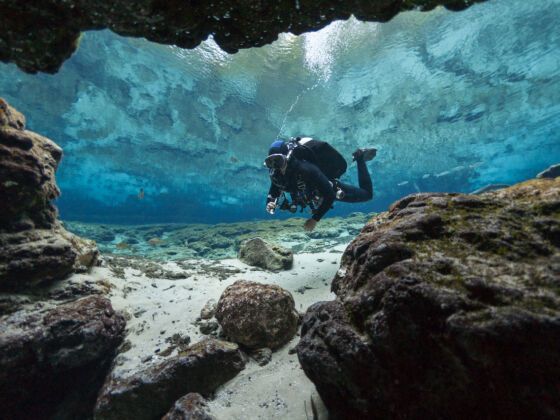WHEN FATALITIES OCCUR under ice, in caves, or in areas requiring decompression diving, there are only a few people who are qualified to retrieve the bodies.
As a regional coordinator for International Underwater Cave Rescue and Recovery, Conrad Pfeifer is one of those people. A full-time police officer in Middlesex, Pa., Pfeifer has more than 25 years of experience as a cave diver and instructor, and has participated in hundreds of safety and recovery dives. Though diving is his passion, he says that responding to recoveries is something he’d rather not have to do.
